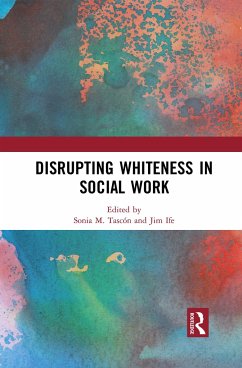
The Challenge of Right-wing Nationalist Populism for Social Work
A Human Rights Approach
Herausgegeben: Noble, Carolyn; Ottmann, Goetz
Versandkostenfrei!
Versandfertig in 6-10 Tagen
43,99 €
inkl. MwSt.

PAYBACK Punkte
22 °P sammeln!
Right-wing nationalist populism poses direct attacks on social tolerance, human rights discourse, political debates, the survival of the welfare state and its universal services, impacting on the roles of social work. This book demonstrates how right-wing nationalist populism can and must be countered.Using case studies from around the world, this book shows how a revitalised radical social work where community organisation, building alliances, trade union commitment and social action can be used as political forces to speak up against discrimination and hate in accordance with human rights, s...
Right-wing nationalist populism poses direct attacks on social tolerance, human rights discourse, political debates, the survival of the welfare state and its universal services, impacting on the roles of social work. This book demonstrates how right-wing nationalist populism can and must be countered.
Using case studies from around the world, this book shows how a revitalised radical social work where community organisation, building alliances, trade union commitment and social action can be used as political forces to speak up against discrimination and hate in accordance with human rights, social justice, and social work values. The rise of national populism signals that now is the time for social work to forge and reforge such networks and create links with civil society and challenge right-wing populist policies wherever they manifest themselves.
It will be of interest to all social work students, practitioners and academics, particularly those working oncritical and radical social work, green social work, anti-oppressive practice and community development.
Using case studies from around the world, this book shows how a revitalised radical social work where community organisation, building alliances, trade union commitment and social action can be used as political forces to speak up against discrimination and hate in accordance with human rights, social justice, and social work values. The rise of national populism signals that now is the time for social work to forge and reforge such networks and create links with civil society and challenge right-wing populist policies wherever they manifest themselves.
It will be of interest to all social work students, practitioners and academics, particularly those working oncritical and radical social work, green social work, anti-oppressive practice and community development.














